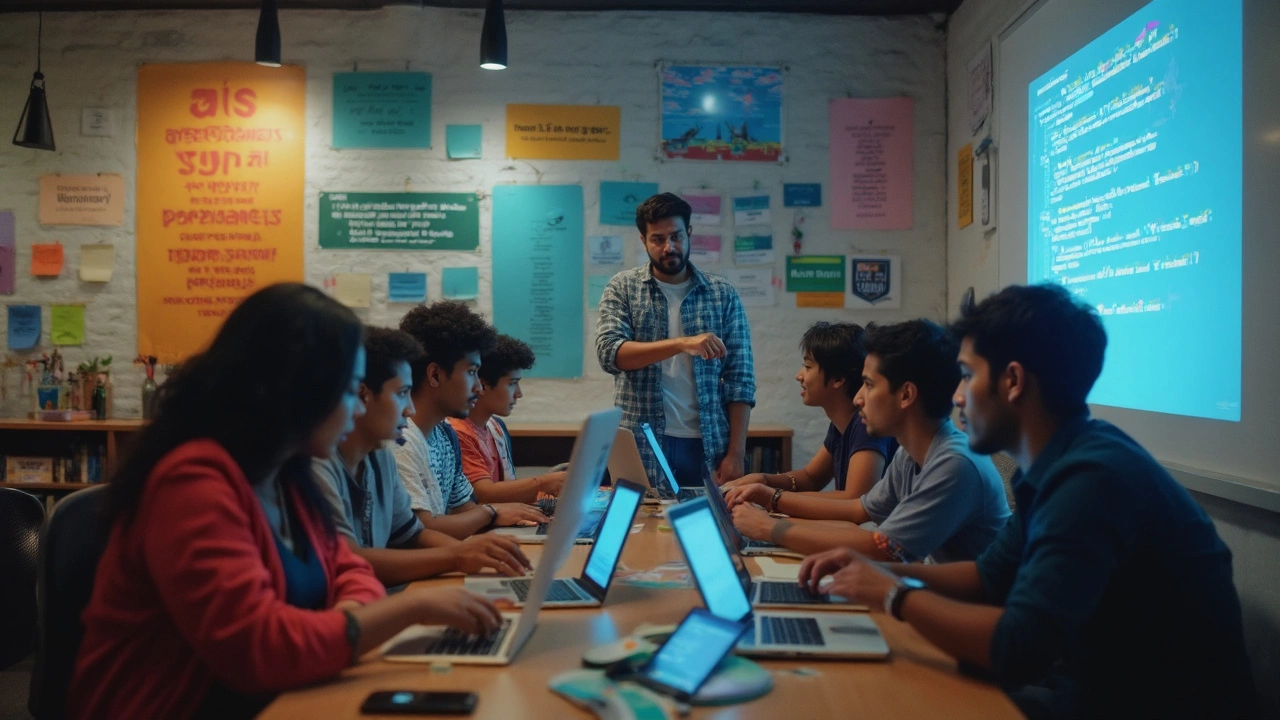Learn Coding Fast: Practical Steps to Start Programming Today
If you want to write a program this week instead of next year, you need a clear, no‑fluff plan. The good news is you don’t have to master every language before you can begin. Pick a goal, use the right resources, and practice in short, focused bursts. Below are the exact moves that will get you coding fast.
Pick One Language and Stick to It
Jumping from Python to JavaScript to C++ will only slow you down. Choose a beginner‑friendly language that matches your goal. Want to build a website? Go for JavaScript. If you like data or automation, Python is the easiest. Write down the language name, install it, and keep it front‑and‑center in every study session.
Why does this matter? Each language has its own syntax and quirks. By staying with one, your brain builds pattern recognition faster. You’ll stop spending time on new keywords and start focusing on solving real problems.
Use Interactive Tutorials, Not Long Textbooks
Hands‑on learning beats reading pages of theory. Sites like freeCodeCamp, Codecademy, and the official Python docs have built‑in editors that let you type code and see results instantly. Work through the first 5‑10 lessons, then try to recreate the same thing without looking at the guide.
This “learn‑by‑doing” loop – watch, type, test, repeat – creates muscle memory. It also shows you errors right away, so you learn to debug early, a skill that separates fast learners from slow ones.
Set Tiny Milestones Every Day
Instead of a vague goal like “learn coding,” break it into bite‑size tasks: “print my name in Python,” “make a button that shows an alert,” or “write a loop that adds numbers.” Aim for 20‑30 minutes of focused work, then take a short break.
When you finish a milestone, you get a quick win that fuels motivation. Keep a checklist and watch the items tick off – it’s surprisingly satisfying and keeps the habit alive.
Code Along with Real Projects
Pick a simple project that interests you – a personal to‑do list, a calculator, or a basic blog. Follow a tutorial that builds the same project, but stop halfway and finish the rest on your own. This forces you to apply what you’ve learned and spot gaps in your knowledge.
Real projects also give you something to show later. A small portfolio piece can impress a future employer or a mentor, and it reminds you why you started learning in the first place.
Join a Community for Quick Feedback
Ask questions on Stack Overflow, join a Discord server for beginners, or follow a coding subreddit. Posting a tiny piece of code and getting a fast reply saves hours of frustration. Plus, seeing other people’s solutions expands your toolbox.
Don’t be shy – most coders love helping newbies. The more you engage, the faster you’ll move past roadblocks.
Practice Debugging Early
Errors are a normal part of coding. When you see a red line or a crash, read the error message, Google the exact text, and try to fix it yourself before asking for help. This habit turns bugs into learning moments.
As you debug more, you’ll start spotting common patterns – missing commas, wrong indentation, wrong variable names. Those patterns become second nature, and your coding speed jumps.
Keep the Momentum Going
After a week of daily practice, review what you’ve built. Refactor an old script, add a new feature, or rewrite a function in a cleaner way. This consolidation step locks in what you learned and shows you how far you’ve come.
Remember, learning to code fast doesn’t mean skipping depth – it means focusing on the right actions, practicing daily, and getting feedback quickly. Follow these steps, stay consistent, and you’ll be writing useful code in just a few weeks.
Can I Learn Coding in 3 Months?
Wondering if you can learn coding in just three months? It's possible with the right approach, discipline, and resources. Learn all about strategies for fast learning, the best programming languages to start with, and tips to maximize your coding education in a short amount of time. Explore how consistent practice, online resources, and mentorship can accelerate your journey.
read more